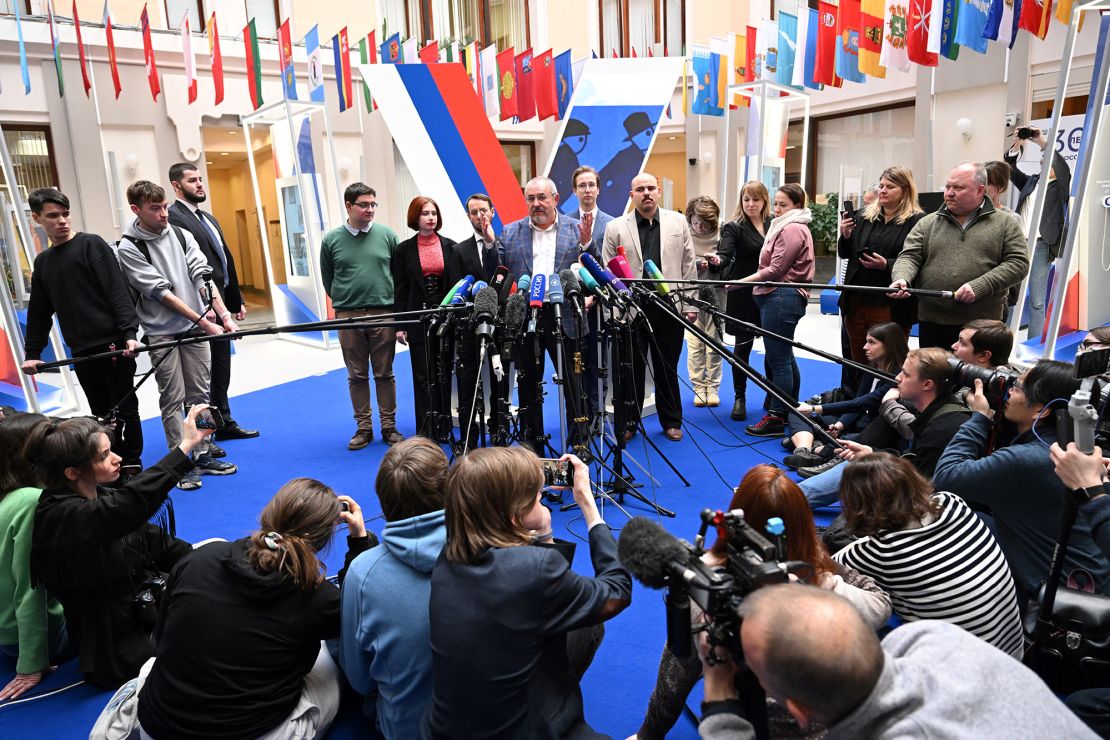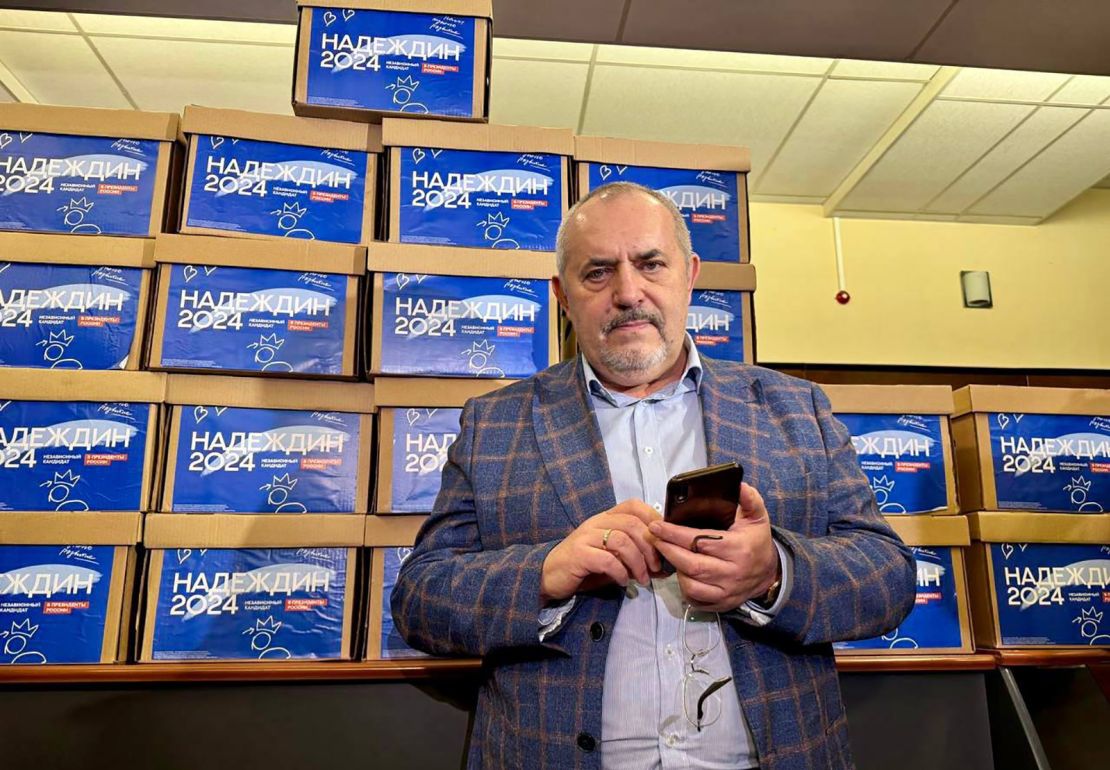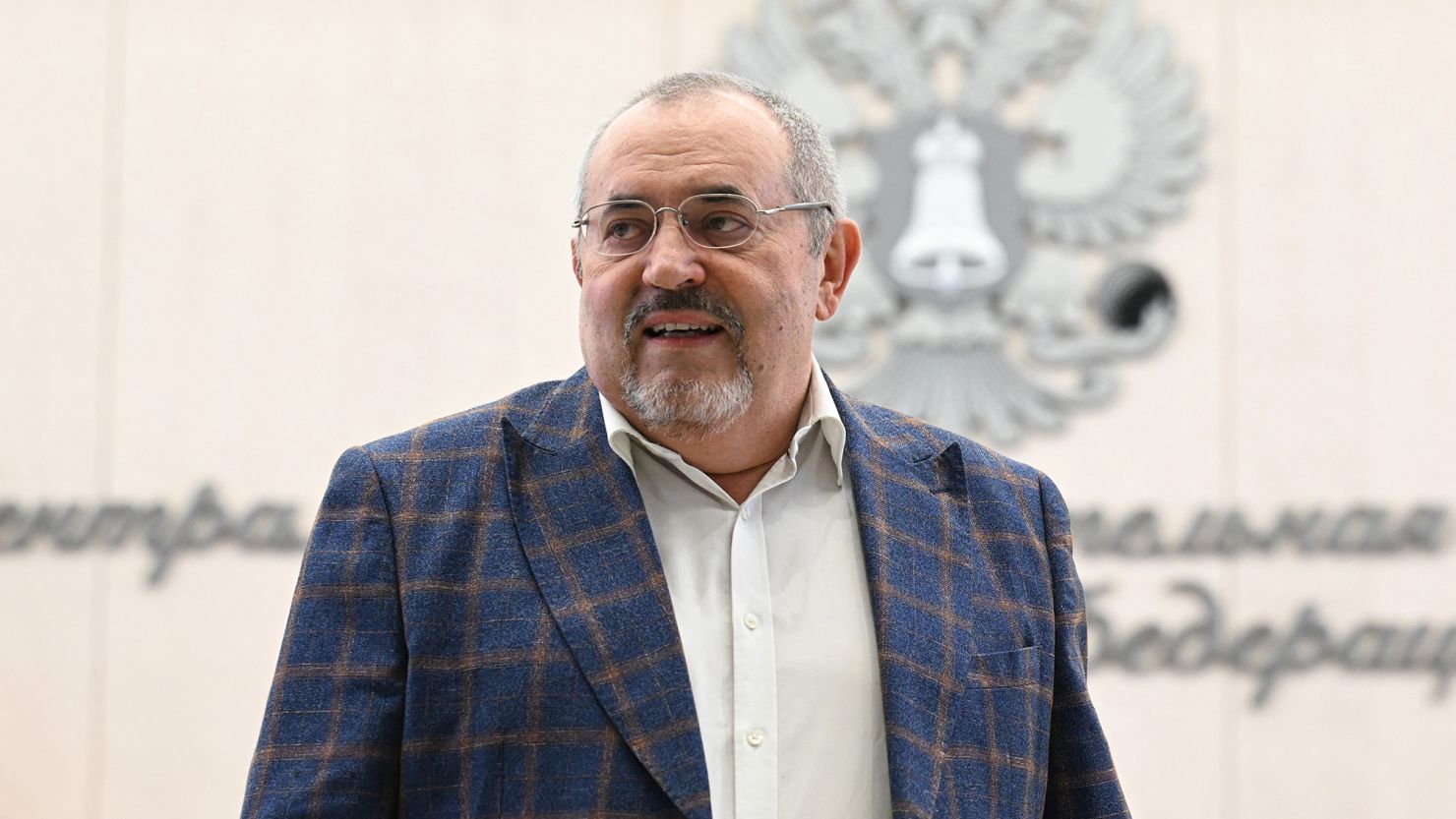Anti-war candidate Boris Nadezhdin has been barred from standing in Russia’s presidential election next month, in a move that further clears the country’s political landscape of opponents to Vladimir Putin.
The decision was made during a ruling on Thursday by the Central Election Committee (CEC) of Russia, the body tasked with registering and verifying potential candidates.
According to the CEC, Nadezhdin only collected 95,587 legitimate signatures, 5,000 short of 100,000 benchmark.
Nadezhdin has disputed the CEC claims regarding the signatures and said he will appeal the refusal of his registration to the Supreme Court. He also said he would dispute the committee’s regulations.
“No one has any doubt that hundreds of thousands of people really signed for me. There is no doubt about it,” Nadezhdin said following the ruling. “We will appeal the regulations and the collection procedure itself.”
But the move indicates that he will join a number of anti-war activists to be isolated from Russia’s political scene, as Moscow prepares for a presidential election that international observers consider a mere formality.

Nadezhdin, a former State Duma MP who intended to run as an independent candidate from the Civic Initiative party, has a staunch anti-war stance and openly challenges Putin’s policies, positioning himself as the sole presidential hopeful willing to openly oppose the invasion of Ukraine.
Thousands had lined up in cities across Russia and elsewhere in Europe since early January to give their signatures in support of Nadezhdin, with volunteers collecting expats’ signatures in cities from London and Paris to Georgia’s capital Tbilisi.
But his campaign struck difficulties when the CEC working group claimed to have identified over 15% invalid signatures in the paperwork required to run for president, exceeding the permissible 5% for registration.
He then failed in an effort to have the meeting on his participation moved to Saturday. Nadezhdin argued that he needed additional time to thoroughly examine the concerns and prepare his counterarguments.
On Thursday, Kremlin spokesperson Dmitry Peskov reacted to the commission’s unanimous ruling, saying, “There are certain criteria that a candidate must meet. What we heard from the Central Election Commission today is that [there] was a large number of flaws in the signatures. Therefore, an important criterion has not been met.”
Fears for safety
The decision will raise further concerns about the sidelining and targeting of political opponents in Russia, a feature of Putin’s four terms as president that has intensified since he launched Moscow’s full-scale invasion of Ukraine in February 2022.
Nadezhdin last month told CNN that his family feared for his safety, in a reference to the sidelining of those who oppose Putin. He said that after “a very big discussion with my family,” he decided to stand for election.
After considering the issue, “we decided this for my family and for my children, for my grandchildren, (it) will be better if Russia will be peace(ful) and (a) free country.”
The Kremlin had sought to dismiss the relevance of Nadezhdin’s expected candidacy in recent weeks, with Peskov telling journalists last month: “We do not consider him as a rival.”
But his efforts had attracted attention. Nadezhdin announced he had delivered 105,000 signatures to the CEC last month – the maximum allowed by law – for his official candidacy.
Speaking to independent Russian news channel RTVI last week, Nadezhdin said that should he win he would not send Putin to face a war crimes tribunal and insisted that he would get a “pension and government protection.”

The Kremlin leader is running for a fifth term as Russia’s president in next month’s election. There are four candidates set to be on the official ballot – Putin, Vladislav Davankov, Nikolai Kharitonov and Leonid Slutsky.
Davankov is deputy chair of the Duma, Russia’s lower house of parliament. Kharitonov is a member of the Communist Party; and Slutsky represents the Liberal Democratic Party of Russia, the party previously lead by ultra-nationalist firebrand Vladimir Zhirinovsky, who died in 2022. All are considered to be reliably pro-Kremlin.
But Putin is expected to secure a term that will keep him in office until 2030; he is now the longest-serving ruler of Russian since Soviet dictator Joseph Stalin.
In his 24 years as the dominant figure in Russian politics, Putin has marginalized his political opponents and muzzled the country’s press. Russia’s tightly managed democracy allows for little real political competition and presidential elections have essentially become plebiscites that showcase Putin’s popular approval.
Writing on social media, opposition activist Leonid Volkov dismissed the elections as a “circus,” saying they were meant to signal Putin’s overwhelming mass support. “You need to understand what the March ‘elections’ mean for Putin. They are a propaganda effort to spread hopelessness” among the electorate, Volkov said on Thursday.
In December, another independent candidate who openly spoke out against the war in Ukraine, Yekaterina Duntsova, was rejected by the CEC, citing alleged errors in her campaign group’s registration documents. Duntsova later called on people to support Nadezhdin’s candidacy.
In January, shortly after expressing her intent to create her own political party, Duntsova reported being briefly detained by traffic police and randomly drug-tested. Opponents of the Kremlin have often alleged the fabrication of criminal charges through the planting of drugs.
CNN’s Nathan Hodge and Lauren Kent contributed to this report.


